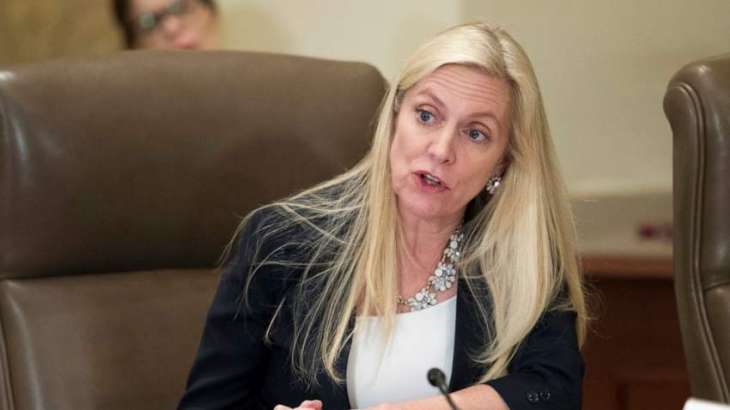The US economy may be forced into a slower and weaker recovery from the coronavirus pandemic if another stimulus bill is not passed soon, Federal Reserve Governor Lael Brainard said Wednesday
WASHINGTON (Pakistan Point News / Sputnik - 21st October, 2020) The US economy may be forced into a slower and weaker recovery from the coronavirus pandemic if another stimulus bill is not passed soon, Federal Reserve Governor Lael Brainard said Wednesday.
"Apart from the course of the virus itself, the most significant downside risk to my outlook would be the failure of additional fiscal support to materialize," Brainard said in a live-streamed speech to the UK-based Society of Professional Economists annual conference. "Too little support would lead to a slower and weaker recovery."
The US Congress approved a Coronavirus Aid, Relief and Economic Security (CARES) stimulus in March, dispensing roughly $3 trillion as paycheck protection for workers, loans and grants for businesses and other personal aid for qualifying citizens and residents.
Democrats who control the House have been locked in a stalemate since with Republicans aligned to President Donald Trump on a successive package to the CARES. The dispute has basically been over the size of the next relief, as thousands of Americans, particularly those in the airlines sector, risked losing their jobs without further aid.
There have also been doubts on whether the two sides can agree to anything in the run-up to the November 3 US election, where Trump faces Democrat challenger Joe Biden. Negotiations for a new coronavirus stimulus are, however, continuing, with Congress Speaker Nancy Pelosi hoping to find a compromise with Treasury Secretary Steven Mnuchin for a deal before the election, the speaker's Deputy Chief of Staff, Drew Hammill, said in a statement on Tuesday.
Congress' failure to act decisively on a stimulus could do more harm to the economy, Brainard said.
"Premature withdrawal of fiscal support would risk allowing recessionary dynamics to become entrenched, holding back employment and spending, increasing scarring from extended unemployment spells, leading more businesses to shutter, and ultimately harming productive capacity," she said.
The US economy shrank nearly 33 percent in the first three months of 2020 for its sharpest decline since the financial crisis of 2008/09, as most of the 50 states in the country went into lockdown to stem the outbreak of the COVID-19 between March and May. While almost all sectors of the economy have largely reopened since,�jobs and other recovery have been slow.
Some 21 million American jobs were lost between March and April, at the height of lockdowns forced by the COVID-19. About 2.5 million jobs were added back to the economy in May and 4.8 million in June, before the recovery began slowing. For all of September, there were just 661,000 job additions.




